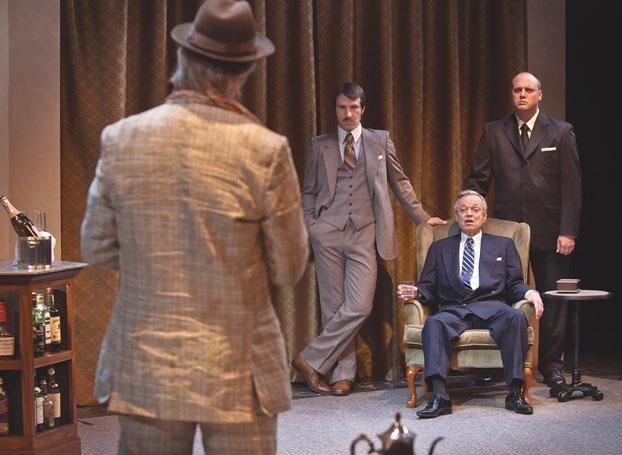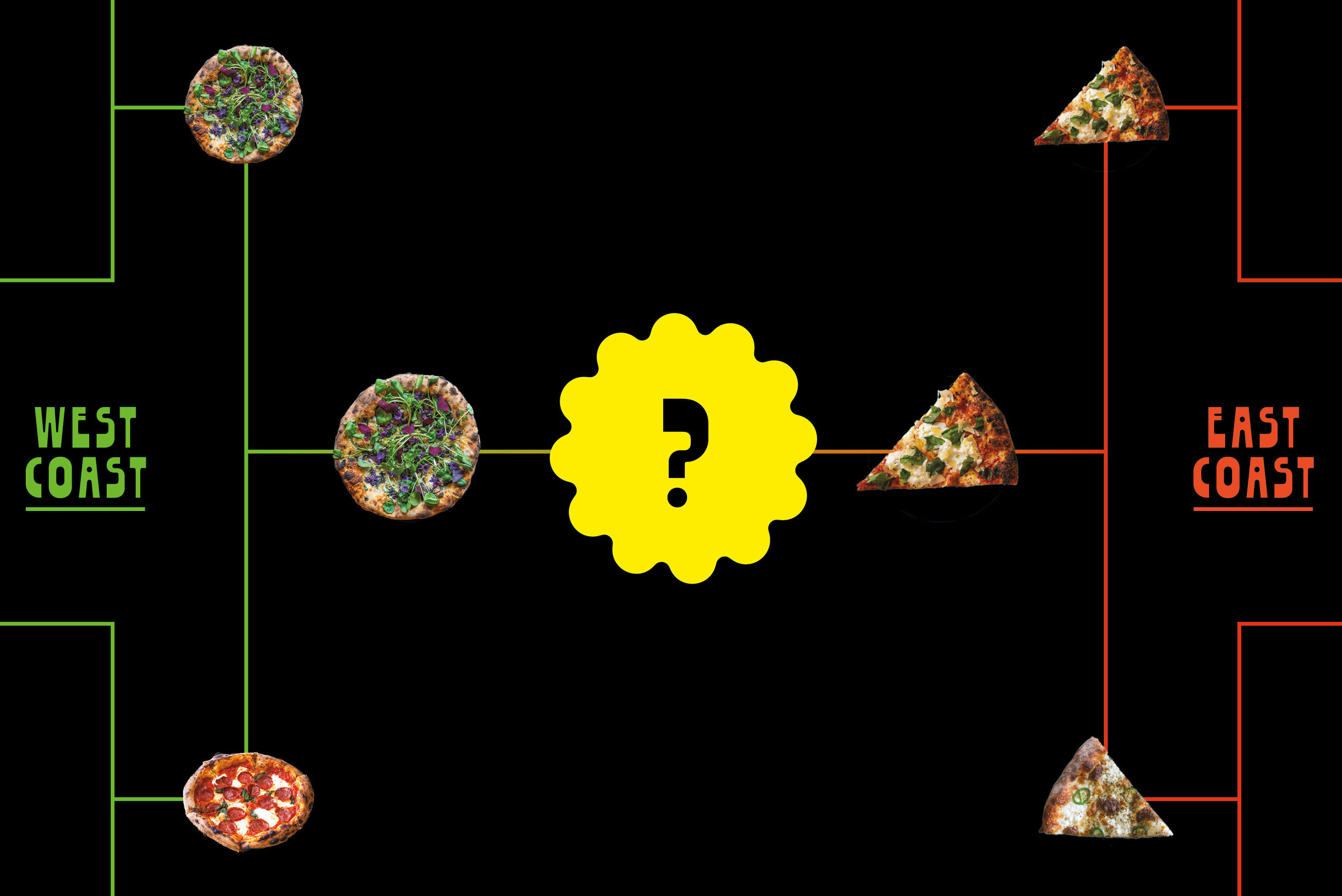Review: No Man’s Land

William Hurt’s character, Spooner, temporarily upsets the pecking order before being “frozen out.”
(Left to right: William Hurt, Alex Hurt, Allen Nause, Tim True.)
English society’s preoccupation with their own accents can scarcely be overstated. And it’s no wonder, in a country where regional dialects abound and the monarchy’s pronunciation preference, aka “The Queen’s English,” is the gold standard to which all heads of state and BBC broadcasters comply. How one talks has become such a code for social status, that one dropped consonant could get you a bad table. On the other hand, twisting your tongue just so, curries unwarranted favor. Just ask Eliza Dolittle—or Spooner, William Hurt’s character in Artists Rep’s production of No Man’s Land.
Spooner is a self-described park-loiterer, poet, and “betwixt-twig peeper”—but it sounds so much better when he says it, in his crisp and kingly diction, that the wealthy Hirst (Allen Nause) can’t resist inviting the self-confessed gaddabout into his luxurious parlour for a night cap. Both characters have already drunk their brittle British bones to the brink of extinction, enabling a false camaraderie. While savoring the sound of his own voice and imbibing even more stupefying spirits, Spooner “gabbles on” about the game of cricket (code for sex) and generally puffs and pontificates while Hirst gradually cracks, crawling on the carpet in a glazed-eyed amnesiac fit before being subdued by two man-servants.
The servants, we’re led to understand from their accents, are middle- and lower-class, respectively, and they divide the tasks of looking after their “gentleman,” “p*ss hound” boss, suspending him in a comfortable state of isolation and denial. William Hurt’s son Alex Hurt plays Foster, the middleman and would-be diplomat, while Tim True plays Briggs, the estate’s plain-spoken, ham-handed enforcer. When they see their boss fall into a presumably typical freakout in front of a stranger, the two become tersely defensive. Foster paces with nervous energy, while Briggs remains more ominously contained. But here’s the kick: Neither man has the implicit authority to “step to” Spooner, because he has the fancier accent. (No, seriously. It’s an English thing.)
No Man’s Land is schadenfreude and vouyerism at its finest, as the audience become the “peepers” on an unseemly side of a rich man’s private addiction. But we also understand that no matter how drunk Hirst gets or how hard his servants work, neither party will ever change rank. While giving driving directions, Briggs describes “an intricate one-way system, easy enough to get into, but very hard to get out.” (Hotel California, anyone?). Though it’s hard to watch, this challenging content could scarcely be delivered better. Nause is electric, the Hurts are first-rate, and even simple flourishes of set and lighting are meticulously fitted to the mood. All the aforementioned accents are, as the saying goes, “spot-on,” which is, in itself, no small feat.
Father and son Hurt come off as complete strangers, even as Nause and William Hurt maintain a bristling tension that belies their real-life friendship. Tim True holds his own amongst the all-stars, with realistic gestures and a well-developed character—equal parts physical threat and workaday forbearance. It’s worth noting that Nause outdoes his Oscar-winning contemporary in one department: physicality. William Hurt, ever the introvert, is sometimes tentative with his gestures. He speaks, thinks, then moves. But unlike his recent turn as an Irishman, the role of a (possibly well-bred) Englishman accommodates this quirk. Alex, meanwhile, shows none of his father’s reticence, bringing an easy swagger to his role.
Spooner, in his state of social ambiguity, is given the royal treatment—with a slap. The servants passive-aggressively bring him champagne and tea, yet Hirst very crisply claims to have “had” his late wife. But the purgatory between good and ill favor can’t last. As Hirst’s gentrified denial hardens to a palpable crust, Spooner runs out of wiggle room. “Consort with the society to which you are attached by bonds of steel!” Hirst exclaims. Spooner, having finally revealed himself to be a penniless vagabond despite all his fancy talk, is finally shown the dark side of the door.
For more about Portland arts events, visit PoMo’s Arts & Entertainment Calendar, stream content with an RSS feed, or sign up for our weekly On The Town Newsletter!




